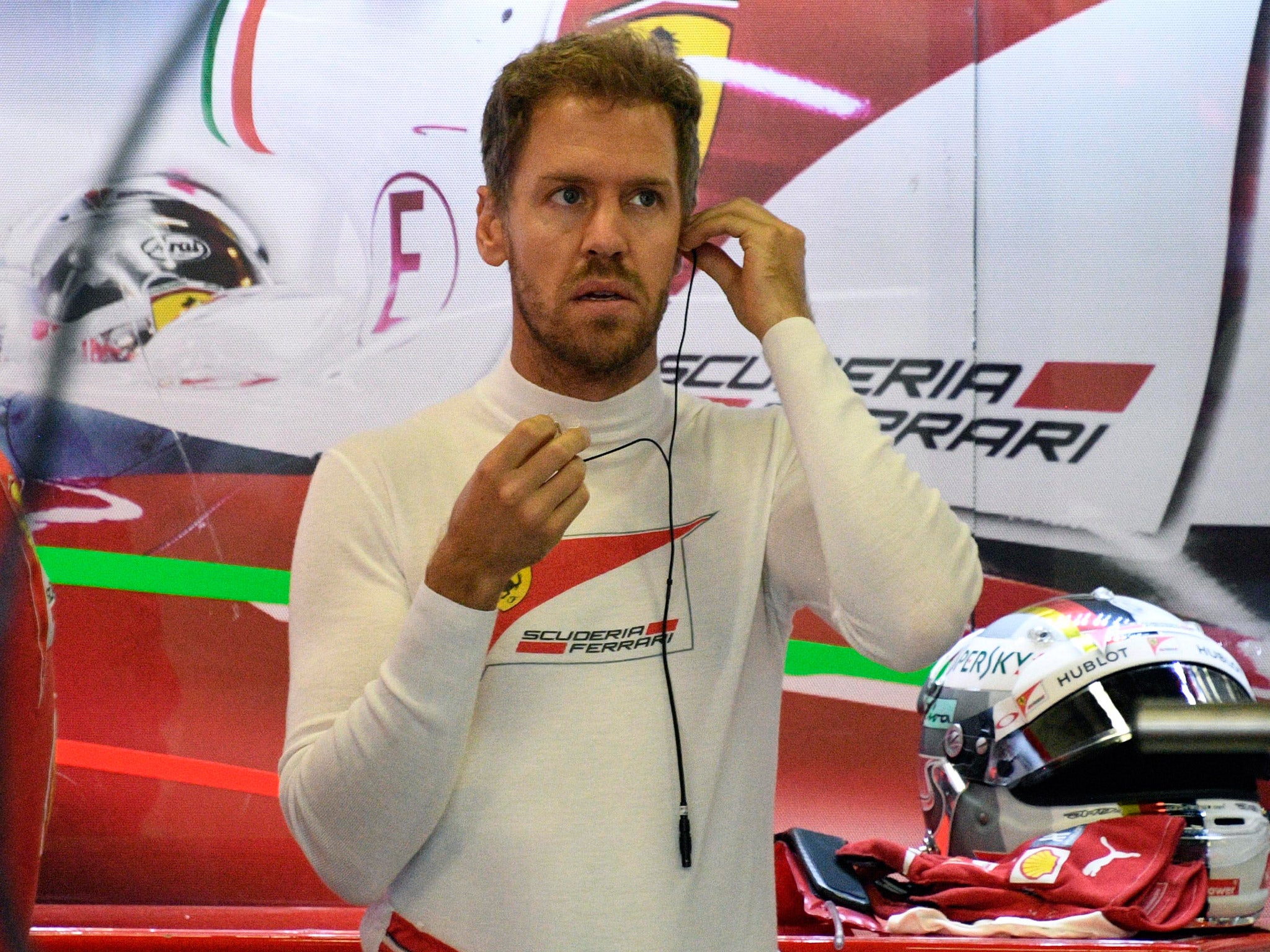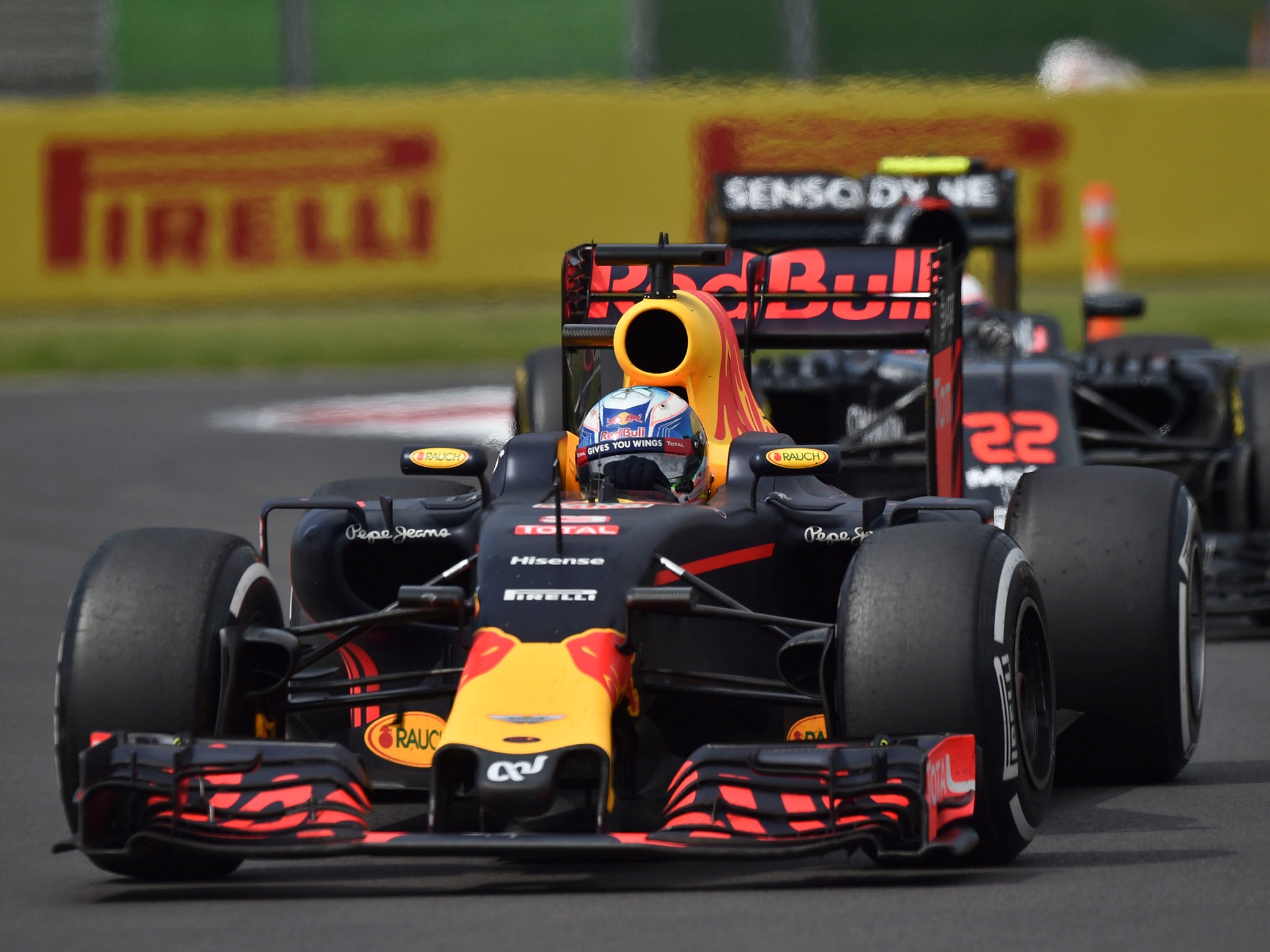F1: Red Bull profits soar to £11.4m after Sebastian Vettel left for Ferrari
Offloading Vettel's £13m annual salary helped generate a 26% increase in profit as Red Bull reap rewards on and off the track

Your support helps us to tell the story
From reproductive rights to climate change to Big Tech, The Independent is on the ground when the story is developing. Whether it's investigating the financials of Elon Musk's pro-Trump PAC or producing our latest documentary, 'The A Word', which shines a light on the American women fighting for reproductive rights, we know how important it is to parse out the facts from the messaging.
At such a critical moment in US history, we need reporters on the ground. Your donation allows us to keep sending journalists to speak to both sides of the story.
The Independent is trusted by Americans across the entire political spectrum. And unlike many other quality news outlets, we choose not to lock Americans out of our reporting and analysis with paywalls. We believe quality journalism should be available to everyone, paid for by those who can afford it.
Your support makes all the difference.Profits at Red Bull’s championship-winning Formula One team accelerated 26% to £11.4m last year when its costs reversed after its star driver Sebastian Vettel defected to Ferrari.
Vettel won four consecutive championships for Red Bull Racing but left for Ferrari after the team’s winning streak came to an end in 2014 when F1 switched from 2.4 litre V8 engines to 1.6 litre V6 hybrids. Vettel was paid an estimated £13m annually and his exit fuelled a sharp decrease in the team’s costs which in turn boosted its profits.
Recently-filed accounts for Red Bull Technology, the company which owns the team, show that its costs in 2015 fell by 11.3%. They came to £225.5m on revenue of £235.6m which primarily comes from three sources: prize money, sponsorship and payments from its parent, the energy drinks company Red Bull.
In 2015 the team finished fourth in the standings, two places down from the previous year, but this wasn’t driven by the loss of Vettel, it was because its engine manufacturer Renault was still getting to grips with the new V6.
During 2015 Red Bull repeatedly threatened to drop Renault and pull out of F1 if its performance didn’t pick up. It reportedly signed a deal to switch to VW engines from this year but that bit the dust when the German manufacturer became embroiled in an emissions scandal.
Instead, Red Bull remained with Renault and boosted its research and development spending by £17.5m to hit a total of £98.3m in a bid to improve its chassis and return to its winning ways this year. The team also added 36 staff, mostly in the design, racing and production departments, giving it a total of 730 who were paid a combined £70m. It paid off.
Red Bull lies in second place going into the penultimate race of the season in Brazil next weekend and it is the only team, other than champions Mercedes, which has won races this year. In contrast, Ferrari lies in third place and Vettel’s irritation has become increasingly public.
At last weekend’s Mexican Grand Prix he launched into a tirade of expletives in the closing stages of the race when he was blocked by Max Verstappen, the 19 year-old who ultimately replaced him at Red Bull Racing. Verstappen finished in third place but was demoted to fourth due to his actions. However, in an ironic twist, Vettel himself was stripped of his podium position and moved to fifth place for blocking Verstappen’s team-mate Daniel Ricciardo in the final laps.

Like last year, Red Bull has been developing its 2017 car throughout this season and is fuelled with more investment after signing new partners watch maker TAG Heuer and Aston Martin. It can also count on a boost in its prize money due to its improved performance.
The higher the team’s revenue is and the lower its costs are, the less needs to be poured in by Red Bull. In turn, the more self-sufficient the team becomes which thereby secures its future. Last year Red Bull’s investment in it reversed by £15.6m to £44.9m putting it on a track towards independence.
Join our commenting forum
Join thought-provoking conversations, follow other Independent readers and see their replies
Comments